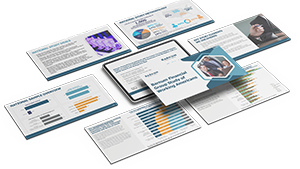
If you’re still keeping up with your financial objectives, you’re in good company. A financial plan is essential to manage your finances effectively, fulfill your goals, clear your debt without exhausting your cash, and invest for wealth growth.
It’s helpful to perform a mid-year review to assess your progress, make adjustments to accommodate your current financial status, and adapt strategies to enable you to achieve your goals.
Taking Stock of Your Finances
Reviewing Goals
Go through this year’s financial goals. What was your saving target? How much did you intend to save by this month? How much progress have you made in repaying debt? Analyze your investment goals and strategies. Examine your findings and measure your effectiveness.
Analyzing Income and Expenses
Track your income and expenses for the first half of the year. Is your income more or less than your indicated amount? Analyze your financial obligations. Have they increased, or have you deviated from your original budget? Note where your spending aligns with allotted funds.
Evaluating Debt Repayment
Assess your progress on debt repayment goals. Evaluate the efficacy of your original strategies to clear your debt. Will they strain your resources for the remainder of the year? Consider strategizing to accelerate debt payoff if needed.
Adapting for Change
Life Changes and Adjustments
Your present situation might be different from what it was at the beginning of the year. You may have received a promotion at work or you could be in the middle of job transition. You may have started the year as a double-income household, and now you are reduced to a single income.
Whatever it may be, you could be looking for strategies to accommodate these changes. It may mean downsizing, changing neighborhoods, looking for passive income, or starting a business.
Income Fluctuations
Has your income increased or decreased since the beginning of the year? Is the change significant to impact your budget? Formulate strategies to adjust savings or spending based on income changes. If your income is lower, consider frugality to make ends meet. If your income is more, increase your savings or channel the extra funds toward investments.
Redefining Your Strategy
Revisit Budget Assumptions
Fine-tune your initial budget using your spending patterns in the first half as a guide. Adjust some categories as necessary to reflect your current and projected future needs. For instance, if your essentials have increased, consider finding cheaper options to fulfill each need.
Refine Investment Strategies
Assess how your investment portfolio is performing against the backdrop of the current market. The current market condition differs from the first financial quarter. It may have triggered a drift from your original plan. Evaluate how your portfolio has performed and consider if it still reflects your risk tolerance and investment goals. Consider rebalancing your portfolio by strategically buying or selling assets to bring the mix of investments back in line with your target allocation.
Revisit Savings Goals
Analyze your savings goals progress. Can your emergency fund sustain you for the rest of the year? Have you been consistent with your retirement savings? Is your income capable of accommodating an increase in savings?
Adjust contribution amounts to reflect your current income, needs, and debt. Consider multiplying your income streams to stay on track. If there are no major changes, remain consistent. Find easy ways to ensure you continue saving, like automating your contributions.
Time to Roll Up Your Sleeve and Soldier On
Proactive financial planning and adjustments are essential to help meet your financial objectives and obligations. You can leverage the expertise and resources of a financial professional to help you strategize your plans according to your current and future needs and short and long-term goals. You have come so far. Keep going to actualize your ultimate objective to attain financial freedom.



